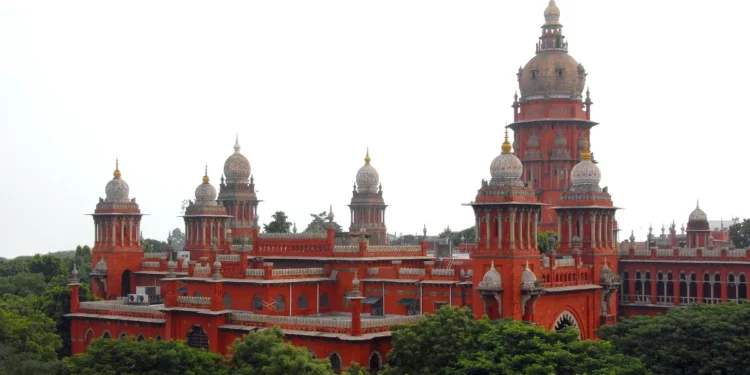On Monday, July 21, the Madurai Bench of the Madras High Court put a temporary stop to the DMK’s digital membership campaign named Oraniyil Tamil Nadu. The court issued the stay to address concerns about data privacy in the campaign. The DMK launched this campaign earlier in July to enroll members across Tamil Nadu.
The court’s order came in response to a Public Interest Litigation (PIL) filed by S Rajkumar from Thirupavanam in Sivagangai district. In his petition, Rajkumar claimed that the DMK was collecting sensitive personal data like Aadhaar numbers, voter IDs, and mobile numbers. He alleged that the party did this without asking for proper consent from individuals. He also alleged that many were being added to the party’s membership list without their knowledge.
A division bench of Justices AD Maria Clete and SM Subramaniam issued the injunction and asked the DMK to explain how it protects people’s data, what privacy policy it follows, and whether it clearly informs individuals before collecting their data.
The court observed that there are concerns about possible data breaches and misuse of data collected through OTP-based door-to-door campaigns. The court emphasized that protecting voter information and personal data is part of the fundamental right to privacy. This right is guaranteed under Article 21 of the Constitution.
The judges also warned that third-party companies could misuse the data collected during such drives. They pointed out that the DMK had not clearly explained how it would protect the data. The court stressed that collecting political preference data without safeguards could lead to voter profiling. It warned that such data could allow political actors to target or exclude certain voters.
Quoting a past Supreme Court judgment, the court noted that political beliefs fall under the right to freedom of expression. It said that without privacy, people might be afraid to express their political views. This fear could lead to discrimination, trolling, or even denial of job opportunities.
The case has also involved the State and Central governments, the Unique Identification Authority of India (UIDAI), and the Sivaganga District Collector. The court said it needs to investigate the issue further to ensure it does not violate citizens’ rights.










